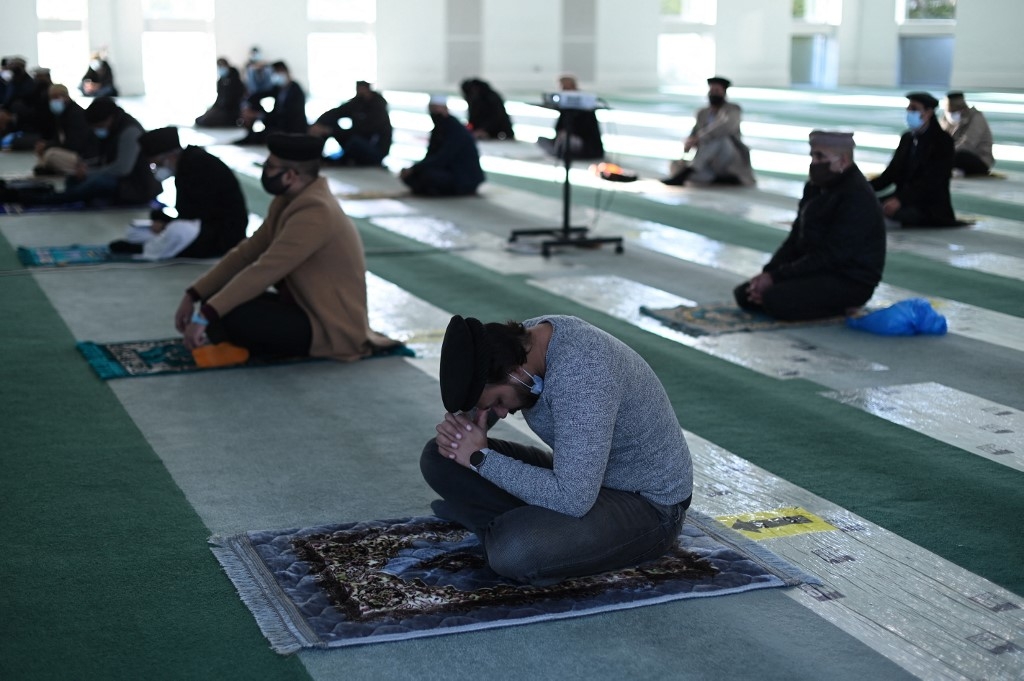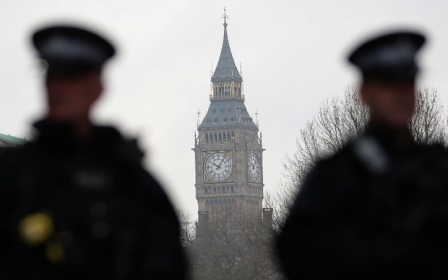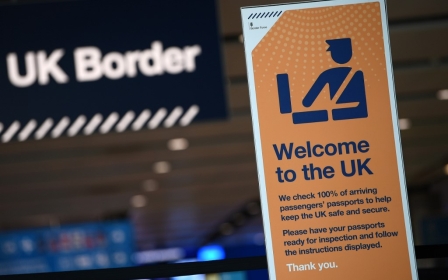Prevent: We need to listen to those harmed by UK counter-extremism policy

The government’s appointment of William Shawcross as the new reviewer of Britain’s counter-terrorism policy, Prevent, has blown away any remaining veneer of credibility it might have had to oversee a robust and independent review process.
That’s why, this week, more than 550 signatories from a broad-based Muslim coalition have rejected his appointment and are calling for an alternative people’s commission.
Since 2015, Prevent Watch has been shedding light on what had been a very secretive programme. We support those impacted by Prevent, documenting individual stories and analysing new trends in Prevent’s implementation.
Of particular concern has been Prevent’s evolution in the education sector over the last six years.
Unproven allegations
Some of our first cases involved the teachers whose lives were irreparably harmed by the Trojan Horse affair of 2014, where unproven allegations were made about a plot by “Islamists” to take over schools in Birmingham. It was a key catalyst in the evolution of Prevent from a policy to a duty, shaping how the government rolled it out in education. The resulting misconduct cases against the teachers collapsed, but the policy lived on.
A third of all Prevent referrals originate from within education. The harm caused by this cannot be overstated, with young children being referred to Prevent because of their words, play and even their thirst for learning.
We will support a truly independent process that focuses on those harmed by Prevent and is aided by credible expertise and robust evidence
One of the first children we supported was a four-year-old who drew his father chopping a cucumber and had mispronounced the word “cucumber” as “cooker-bomb” at his nursery school, which was flagged as a Prevent referral. This case highlighted how flawed the fundamental premise of Prevent is in schools - that everyday childish behaviour can be used to predict future political violence.
We have documented numerous other cases like this, where on the basis of a misplaced suspicion, children have been caught in the dragnet of Prevent and parents have been subjected to interrogative visits by social workers and counter-terrorism officers.
More than half of our 500 cases involve children, and we have documented the distress caused to families after a Prevent referral. The main concern for these parents is that their child could be removed from their care based on a programme that fatuously claims to predict future criminality.
And their anxiety is wholly justified, given that the law is supposed to operate on the assumption of innocence. Instead, Prevent presumes guilt and requires its victims to prove their innocence in what can be a coercive environment.
Traumatic experiences
According to official statistics, year on year, approximately 90 percent of referrals are false. Yet, while the overwhelming majority of cases lead to no further action, the harm has already been done. A number of our clients say that they have lost trust in their school and other associated authorities, such as police and social care, all of which should offer a supportive role.
For parents and their children old enough to understand what is happening, the experience can be traumatic.
In one case, a teenager with a keen interest in history was referred to Prevent. His mother said: “Our son was devastated. We had held him while he cried, and listened to him crying in his sleep. He didn’t sleep for several days.”
Another mother, whose nine-year-old son was referred to Prevent by his school, said her son “was very worried and anxious about being questioned. He kept asking why he was in trouble and if he had done anything wrong.”
Of course, the interconnected nature of Prevent means that individuals referred in one area of public life are impacted in others. A mother who had her child referred to Prevent revealed that information about the referral had been shared with her doctor. She now fears using health services, saying: “All these years later, I am still terrified of taking my children to the doctors or hospital.”
These cases represent the tip of the iceberg when it comes to harm inflicted on people through Prevent. More scrutiny is needed to assess the long-term impacts of treating British Muslims as a suspect community for two decades, and how this has shaped public perceptions of Muslims and impacted upon the trust, confidence and participation of Muslims in key public services they expect and require.
Writing on the wall
Given the failures of Prevent, and the record of Shawcross’s convictions on Islam, Muslims and "war on terror" policies, it’s no wonder that more than 450 groups and dozens of community figures have expressed a lack of confidence that the government is serious about a truly independent review that would seriously scrutinise the harm done by Prevent.
We will support a truly independent process that focuses on those harmed by Prevent and is aided by credible expertise and robust evidence.
Government reviews, however, are no longer sustainable in the face of increasing voices that vocalise the harm caused by Prevent. The writing for Prevent and its scrutiny - be it academic critiques, case studies, or condemnations by national and international human rights institutions - is already being etched on the wall.
The views expressed in this article belong to the author and do not necessarily reflect the editorial policy of Middle East Eye.
Middle East Eye propose une couverture et une analyse indépendantes et incomparables du Moyen-Orient, de l’Afrique du Nord et d’autres régions du monde. Pour en savoir plus sur la reprise de ce contenu et les frais qui s’appliquent, veuillez remplir ce formulaire [en anglais]. Pour en savoir plus sur MEE, cliquez ici [en anglais].





